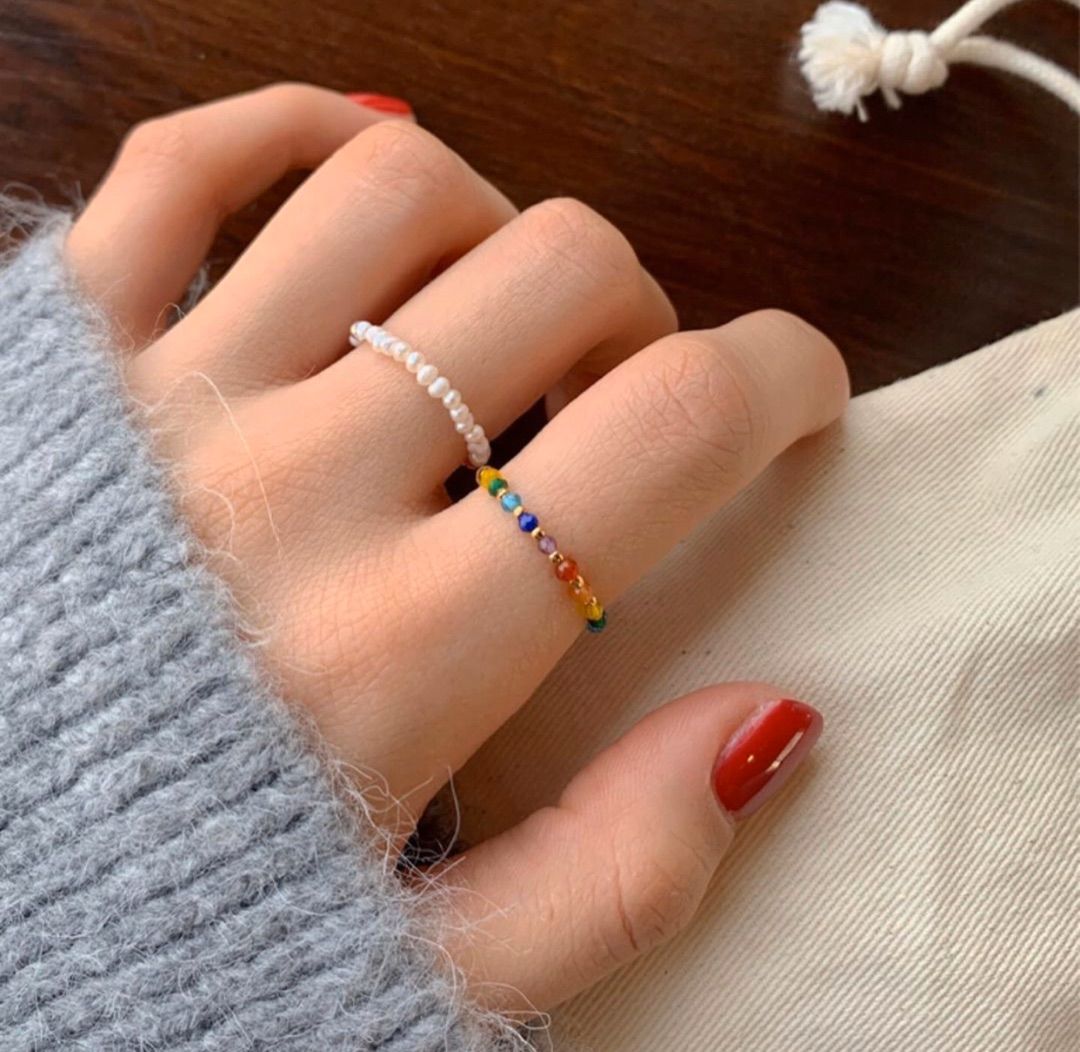Handmade jewelry businesses have become increasingly popular as consumers seek unique, artisanal pieces. However, many entrepreneurs in this industry may be uncertain about their tax obligations. In this article, we will explore the types of taxes that handmade jewelry businesses are subject to, federal, state, and local tax requirements, available deductions and credits, and steps to ensure compliance with tax obligations.
Many individuals who operate handmade jewelry businesses do so as a side business or as a full-time endeavor. Regardless of the scale of operations, it is essential for these business owners to understand their tax responsibilities and ensure compliance with relevant laws and regulations. This includes accurately reporting income from sales and properly documenting expenses related to the business.
While the process of navigating tax obligations may seem daunting to some handmade jewelry business owners, it is crucial to stay informed and seek guidance when necessary. The following sections will provide an overview of the various tax considerations that apply to this industry, as well as resources that can offer assistance in meeting these obligations.
Types of Taxes Handmade Jewelry Businesses Are Subject To
Handmade jewelry businesses, like any other business, are subject to various types of taxes. These taxes may include income tax, sales tax, and self-employment tax. It is important for handmade jewelry business owners to understand their tax obligations in order to avoid any potential legal or financial issues in the future.
One of the main taxes that handmade jewelry businesses are subject to is income tax. This tax is based on the net profit of the business and must be reported and paid annually to the Internal Revenue Service (IRS). Additionally, handmade jewelry businesses that sell their products directly to consumers are also responsible for collecting and remitting sales tax to their state government.
Another important tax obligation for handmade jewelry businesses is self-employment tax. Since most small-scale handmade jewelry businesses operate as sole proprietorships or single-member LLCs, the business owner is considered self-employed and is required to pay this tax, which covers social security and Medicare contributions.
In summary, handmade jewelry businesses have several tax obligations including income tax, sales tax, and self-employment tax. It’s crucial for business owners in this industry to stay informed about these obligations and ensure they are compliant with all federal, state, and local tax laws.
| Tax Obligations | Description |
|---|---|
| Income Tax | Based on net profit of the business; reported and paid annually to IRS |
| Sales Tax | Collected from customers and remitted to state government |
| Self-Employment Tax | Covers social security and Medicare contributions for self-employed individuals |
Federal Tax Obligations for Handmade Jewelry Businesses
Understanding Federal Tax Obligations
Handmade jewelry businesses, like any other business, are required to pay federal taxes. This includes income tax, self-employment tax, and excise tax if applicable. Income tax is based on the net profit of the business, while self-employment tax covers Social Security and Medicare taxes for individuals who work for themselves. Additionally, excise tax may apply to certain types of jewelry, such as luxury or high-value items.
Filing Requirements
It is important for handmade jewelry businesses to understand their filing requirements with the Internal Revenue Service (IRS). Depending on the structure of the business (sole proprietorship, partnership, corporation), different forms may need to be filed. For example, a sole proprietorship would typically use Schedule C (Form 1040) to report business income and expenses, while a corporation would file a separate corporate tax return.
Record-Keeping and Documentation
Proper record-keeping is essential when it comes to federal tax obligations for handmade jewelry businesses. Keeping thorough records of income, expenses, invoices, and receipts will not only help with accurate tax reporting but also serve as documentation in case of an IRS audit. This includes documenting any eligible deductions and credits that can lower the overall tax liability for the business.
As a result you have a good understanding about what do handmade jewelry businesses have to pay in taxes at a federal level now I think we should move on into understanding State Tax Requirements for Handmade Jewelry Businesses.
State Tax Requirements for Handmade Jewelry Businesses
Understanding State Sales Tax
One of the most important tax obligations for handmade jewelry businesses is the collection and remittance of state sales tax. Depending on the state in which the business operates, there may be specific requirements for registering for a sales tax permit, collecting sales tax from customers, and filing regular sales tax returns. It’s crucial for handmade jewelry business owners to familiarize themselves with their state’s sales tax laws and ensure compliance to avoid penalties and fines.
Income Tax Obligations
In addition to sales tax, handmade jewelry businesses are also subject to state income tax. The income generated from selling handmade jewelry is considered taxable income at the state level.
Business owners should keep detailed records of their income and expenses to accurately report their earnings and calculate the amount of income tax owed to the state. Some states may also have additional taxes or surcharges based on business revenue, so it’s essential to research and understand the specific income tax obligations in your state.
Use Tax Considerations
For handmade jewelry businesses that purchase materials or inventory from out-of-state vendors, use tax may be applicable. Use tax is similar to sales tax but is imposed on the use, storage, or consumption of tangible personal property purchased from an out-of-state seller. Handmade jewelry business owners should be aware of their use tax obligations and ensure proper reporting and payment if they have made purchases without paying applicable sales tax.
As highlighted above, every state has its own set of taxation requirements for businesses operating within its borders. Handmade jewelry business owners must stay informed about these obligations and seek guidance from local authorities or professional advisers if needed. By understanding and fulfilling their state tax requirements, handmade jewelry businesses can operate legally and avoid potential issues with taxation authorities.
Local Tax Considerations for Handmade Jewelry Businesses
When it comes to running a handmade jewelry business, it’s important to consider the various tax obligations that come with it. While federal and state taxes are often the first to come to mind, local tax considerations are also crucial for ensuring compliance and avoiding any potential issues with the authorities. Here are some key local tax considerations for handmade jewelry businesses:
- Local Sales Tax: Handmade jewelry businesses, like any retail operation, must collect and remit sales tax on their products. The specific sales tax rate can vary by locality, so it’s important to research and understand the rates applicable in your area.
- Business License and Permit Fees: Depending on where your handmade jewelry business is located, you may be required to obtain a business license or permit. These often come with associated fees that need to be budgeted for as part of your overall tax obligations.
- Property Tax: If you operate your handmade jewelry business out of a physical storefront or studio space, you may be subject to property taxes on that location. Be sure to stay informed about these local property tax requirements.
In addition to these considerations, local municipalities may have their own unique tax obligations or incentives for small businesses. As a handmade jewelry business owner, it’s essential to stay informed about all relevant local tax laws and regulations to ensure full compliance.
For more information on navigating local tax considerations as a handmade jewelry business owner, consider reaching out to local small business assistance centers or consulting with a professional tax advisor who specializes in small businesses.
Tax Deductions and Credits Available to Handmade Jewelry Businesses
As a handmade jewelry business owner, understanding the tax deductions and credits available to your business is crucial in maximizing your tax savings. By taking advantage of these deductions and credits, you can potentially lower your taxable income and reduce the amount of tax you owe. Here are some common tax deductions and credits that handmade jewelry businesses may be eligible for:
- Material Expenses: You can deduct the cost of materials used to create your handmade jewelry, including beads, wire, clasps, and other supplies.
- Home Office Deduction: If you use a portion of your home exclusively for your handmade jewelry business, you may be able to deduct expenses such as mortgage interest, utilities, and insurance for that area.
- Business Expenses: Expenses such as shipping costs, packaging supplies, marketing materials, website fees, and trade show expenses are considered deductible business expenses.
In addition to deductions, there are also tax credits available to handmade jewelry businesses. One such credit is the Retirement Plan Startup Costs Tax Credit, which provides a credit for qualified startup costs incurred when establishing a retirement plan for employees. Another potential credit is the Work Opportunity Tax Credit (WOTC), which offers a credit to employers who hire individuals from certain target groups who have consistently faced significant barriers to employment.
While these are just a few examples of tax deductions and credits available to handmade jewelry businesses, it is important to consult with a qualified tax professional to determine which ones apply to your specific business.
Ultimately, by taking advantage of these deductions and credits, handmade jewelry businesses can make a significant impact on their bottom line while remaining compliant with their tax obligations. It is important for business owners to keep detailed records of their expenses and consult with a tax professional to ensure they are maximizing their tax benefits while maintaining compliance with all relevant tax laws.
Steps to Take to Ensure Compliance With Tax Obligations
Starting a handmade jewelry business can be an exciting venture, but it also comes with certain tax obligations that business owners must adhere to. It’s important to understand the different steps that need to be taken in order to ensure compliance with tax regulations.
One of the first steps to take is obtaining an Employer Identification Number (EIN) from the IRS, even if you don’t have employees. This number is used for tax purposes and will be necessary when filing your taxes as a handmade jewelry business owner.
Another crucial step is keeping meticulous records of all business-related expenses and income. This includes receipts for materials purchased, packaging supplies, and any other costs associated with running your handmade jewelry business. By maintaining detailed records, you will be better prepared come tax season and reduce the likelihood of making errors on your tax return.
Finally, it’s essential to stay informed about changes in tax laws that may affect your handmade jewelry business. This can be achieved by staying in touch with a tax professional who can provide guidance on how changes in tax regulations may impact your business. Additionally, there are resources available from the IRS and state revenue departments that provide updates on tax laws and requirements for small businesses.
| Step | Description |
|---|---|
| Obtain EIN | Apply for an Employer Identification Number (EIN) from the IRS |
| Maintain Records | Keep detailed records of all business-related expenses and income |
| Stay Informed | Stay up-to-date with changes in tax laws that may affect your business |
Resources for Handmade Jewelry Business Owners to Seek Tax Guidance
As a handmade jewelry business owner, it’s crucial to understand the tax obligations that come with running your business. Seeking tax guidance from reliable resources can help you stay compliant and make the most of available deductions and credits. Here are some valuable resources for handmade jewelry business owners to seek tax guidance:
1. Small Business Administration (SBA): The SBA offers resources and workshops specifically tailored to small business owners, including those in the handmade jewelry industry. They provide valuable information on tax requirements, deductions, and credits that can benefit your business.
2. Certified Public Accountants (CPA): Hiring a CPA who has experience working with small businesses and independent artisans can provide invaluable guidance when it comes to understanding tax obligations. A CPA can help you navigate federal, state, and local tax requirements specific to your handmade jewelry business.
3. Online Communities and Forums: Engaging with online communities of fellow handmade jewelry business owners can provide insights into how others in your industry handle their tax obligations. While it’s important to verify the accuracy of information shared online, these communities can offer support and real-world advice from peers.
By utilizing these resources, handmade jewelry business owners can gain a clearer understanding of their tax responsibilities and make well-informed decisions for their businesses. Whether seeking advice from government agencies, professionals, or peer groups, staying informed about tax obligations is essential for long-term success in the industry.
Conclusion and Final Thoughts on Tax Obligations for Handmade Jewelry Businesses
In conclusion, while the idea of taxation may seem overwhelming to those operating a handmade jewelry business, it is important to understand and fulfill the tax obligations to avoid any legal issues. As discussed earlier in this article, handmade jewelry businesses are subject to various types of taxes at federal, state, and local levels. It is essential for business owners to be aware of these obligations and take necessary steps to ensure compliance.
One key consideration for handmade jewelry businesses is the availability of tax deductions and credits that can help lower the overall tax burden. By keeping detailed records of business expenses, including materials, tools, and marketing costs, business owners can take advantage of potential deductions. Additionally, it is important for businesses to explore potential tax credits that they may qualify for based on their operations and contributions to the community.
To ensure compliance with tax obligations, handmade jewelry business owners should consider seeking guidance from resources such as certified public accountants or tax professionals who can provide expert advice tailored to their specific business needs. It is also beneficial to stay informed about changes in tax laws and regulations that may impact the business. Ultimately, by staying proactive and informed about tax responsibilities, handmade jewelry businesses can navigate the complexities of taxation while focusing on their creative pursuits.
Frequently Asked Questions
Do You Have to Pay Taxes if You Sell Your Jewelry?
Whether or not you have to pay taxes when selling jewelry depends on various factors such as the profit made and where you reside. In general, any capital gains from selling jewelry may be subject to taxation.
What States Have No Sales Tax on Jewelry?
Some states in the US do not have sales tax on jewelry, including Oregon, New Hampshire, Montana, and Delaware. However, it’s important to note that local regulations and exemptions may vary within each state.
Are Jewelry Sales Reported to the IRS?
Yes, jewelry sales are typically reported to the IRS. For example, if you sell jewelry as a business or make a profit from selling jewelry as an individual, you may be required to report these sales and pay taxes on any resulting income or gains. It’s important to keep accurate records of all jewelry sales for tax purposes.

Welcome to my jewelry blog! My name is Sarah and I am the owner of this blog.
I love making jewelry and sharing my creations with others.
So whether you’re someone who loves wearing jewelry yourself or simply enjoys learning about it, be sure to check out my blog for insightful posts on everything related to this exciting topic!





